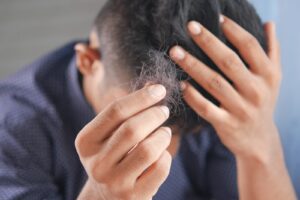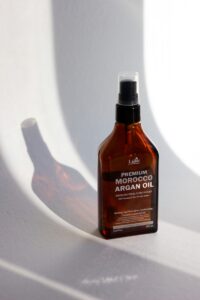The Importance of Hair Care: Achieving and Maintaining Healthy Hair

Healthy hair is an essential part of our overall appearance and well-being. It not only enhances our physical appearance but also boosts our confidence. Taking care of our hair involves various practices and routines that help prevent hair loss, maintain the health of our hair and scalp, and deal with common hair problems. In this article, we will explore the importance of hair care and provide tips on achieving and maintaining healthy hair.
Why is Healthy Hair Important?
Having healthy hair is not just about having good hair days. It is important to your overall well-being. Healthy hair not only looks and feels great, but it also has a positive impact on our mental and emotional well-being.
Impact on Overall Well-being
The health of your hair can directly affect your overall well-being. When you have healthy-looking hair, you feel more confident, happy, and satisfied with your appearance. On the other hand, unhealthy hair can lead to self-esteem issues, anxiety, and even depression.
Enhancing Your Appearance
Your hair plays a significant role in defining your appearance. Well-maintained and healthy hair can enhance your overall look, making you feel more attractive and put-together. It frames your face, complements your features, and adds a touch of elegance to your style.
Boosting Confidence
Healthy hair can significantly boost your self-confidence. When your hair looks good, you feel more confident in yourself and your abilities. This confidence can positively impact various aspects of your life, including personal relationships, professional opportunities, and social interactions.
How to Prevent Hair Loss?
Hair loss is a common hair problem that many people face. While hair loss can be caused by various factors, there are some effective ways to prevent it and maintain healthy hair.
Choosing the Right Shampoo
Using the right shampoo for your hair type is crucial for preventing hair loss. Different hair types have different needs, and using a shampoo specifically formulated for your hair type can help keep your hair healthy and strong. Look for shampoos that are free of harsh chemicals and contain nourishing ingredients.
Taking Care of Your Scalp
A healthy scalp is essential for healthy hair. Keep your scalp clean by washing it regularly with a gentle shampoo. Avoid using hot water as it can strip away natural oils from your scalp. Massaging your scalp regularly can also promote blood circulation, which is vital for hair growth.
Using Conditioner Properly
Using a conditioner after shampooing can help keep your hair moisturized and protected. Apply conditioner from mid-length to the ends of your hair, avoiding the scalp area as it can make your hair look greasy. Rinse thoroughly to prevent product build-up, which can weigh down your hair.
What Are the Best Hair Care Practices?
Maintaining healthy hair involves adopting the best hair care practices and finding a hair care routine that works for you. Here are some tips to help you achieve and maintain healthy hair:
Finding the Right Haircare Routine
Every individual has a unique hair type and different needs. Experiment with different hair care products and routines to find what works best for you. Consider factors such as your hair type, texture, and any specific concerns you may have, such as dryness, frizz, or dandruff.
The Importance of Regular Haircuts
Regular haircuts are essential for maintaining healthy hair. Trimming your hair every few months helps get rid of split ends and prevents hair breakage. It also promotes hair growth and keeps your hair looking neat and well-maintained.
The Role of Shampoo and Conditioner
Using the right shampoo and conditioner for your hair type is crucial for maintaining healthy hair. Shampoos help cleanse your scalp and hair, while conditioners provide nourishment and moisture. Look for products that are specifically formulated for your hair concerns and avoid using too much product, as it can lead to product build-up.
How Does Hair Care Affect Overall Health?
While hair care primarily focuses on the health of our hair and scalp, it also has an impact on our overall health. Here’s how:
Understanding the Connection
The health of your hair and scalp can indicate underlying health issues. For example, brittle and dry hair may be a sign of vitamin deficiencies or hormonal imbalances. Taking care of your hair can help detect and address these issues early on.
Impact of Styling on Hair Health
The way you style your hair can impact its health. Excessive use of heat styling tools, such as straighteners and curling irons, can cause hair damage and lead to breakage. It is important to use these tools sparingly and protect your hair with heat protectant sprays.
Choosing Hair Products Wisely
The hair care products you use can have a significant impact on the health of your hair. Avoid products that contain harsh chemicals, sulfates, and alcohol, as they can strip away natural oils and cause dryness. Opt for natural and organic hair care products that are gentle on your hair and scalp.
How to Deal with Common Hair Problems?
Common hair problems, such as damaged hair, split ends, and dandruff, can be addressed with proper care and the right hair care practices.
Addressing Damaged Hair
Damaged hair can be caused by various factors, including heat styling, chemical treatments, and environmental damage. To address damaged hair, try deep-conditioning treatments, avoid excessive heat and chemical treatments, and protect your hair from sun and environmental damage.
Handling Split Ends
Split ends are a common hair problem that can make your hair look frizzy and unhealthy. Regular trims can help prevent split ends, but if you already have them, the best solution is to trim them off. Using a leave-in conditioner or hair oil can also temporarily smooth out split ends.
Dealing with Dandruff
Dandruff can be an annoying and embarrassing hair problem. Use a dandruff shampoo containing active ingredients like ketoconazole or zinc pyrithione to control dandruff. Avoid scratching or picking at your scalp, as it can worsen the condition. Keeping your scalp clean and moisturized can also help prevent dandruff.
Overall, taking care of your hair is essential for maintaining its health and achieving the desired look. By following the right hair care practices, using suitable products, and addressing common hair problems, you can achieve and maintain healthy, beautiful hair. Remember, healthy-looking hair not only enhances your appearance but also contributes to your overall well-being.
Q: Why is it important to take care of your hair?
A: Taking care of your hair is essential for maintaining its health and appearance. Healthy hair is important not just for aesthetic reasons, but also for your overall confidence and well-being. When you care for your hair, you are ensuring that it stays strong, shiny, and free from damage.
Q: How often should I shampoo my hair?
A: The frequency of shampooing your hair depends on various factors such as your hair type, scalp condition, and lifestyle. On average, it is recommended to shampoo your hair every two to three days. However, if you have oily hair or engage in activities that make your scalp sweaty, you may need to shampoo more frequently.
Q: Do I need to condition my hair after every wash?
A: Yes, conditioning your hair after every wash is beneficial as it helps to replenish moisture, add shine, and reduce frizz. Conditioning also helps to detangle your hair and improve its overall manageability. However, make sure to choose a conditioner that is suitable for your hair type.
Q: How often should I get my hair cut?
A: It is recommended to get a haircut every six to eight weeks to maintain the health and shape of your hair. Regular trims help to prevent split ends, promote hair growth, and keep your style looking fresh.
Q: How can I protect my hair from damage?
A: There are several ways to protect your hair from damage. Avoid excessive heat styling, protect your hair from the sun, use a wide-toothed comb or a brush with soft bristles to prevent breakage, and minimize chemical treatments such as hair coloring or perming. Additionally, wearing a hat or scarf can help protect your hair from environmental factors.
Q: What should I consider when choosing a shampoo and conditioner?
A: When choosing a shampoo and conditioner, consider factors such as your hair type, scalp condition, and specific hair care needs. For example, if you have oily hair, look for a clarifying shampoo. If your hair is dry or damaged, opt for a moisturizing conditioner. It’s also important to read the labels and choose products that are formulated without harsh chemicals or sulfates.
Q: Can not washing your hair frequently lead to hair loss?
A: Not washing your hair frequently does not directly cause hair loss. However, excessive buildup of dirt, oil, and product residue on the scalp can lead to clogged hair follicles, which may hinder healthy hair growth. It’s important to find a balance and wash your hair regularly to maintain a clean and healthy scalp.
Q: How does overall health and well-being affect the condition of my hair?
A: Your overall health and well-being play a significant role in the condition of your hair. Factors such as diet, stress levels, and getting enough vitamins and minerals can impact the health and growth of your hair. Eating a balanced diet, managing stress, and staying hydrated are all important for maintaining healthy-looking hair.
Q: Is it true that hair grows faster if you cut it regularly?
A: No, cutting your hair regularly does not make it grow faster. Hair growth occurs from the hair follicles on your scalp and is not influenced by trimming the ends. However, regular trims can prevent split ends, which can make your hair appear healthier and prevent breakage.
Q: How can I condition my hair if it is dry?
A: If your hair is dry, it is essential to condition it regularly to restore moisture and improve its texture. Look for a deep conditioning treatment or a moisturizing conditioner specifically formulated for dry hair. Additionally, reducing heat styling, avoiding harsh chemicals, and using a wide-toothed comb can help minimize further damage and maintain hydration.





